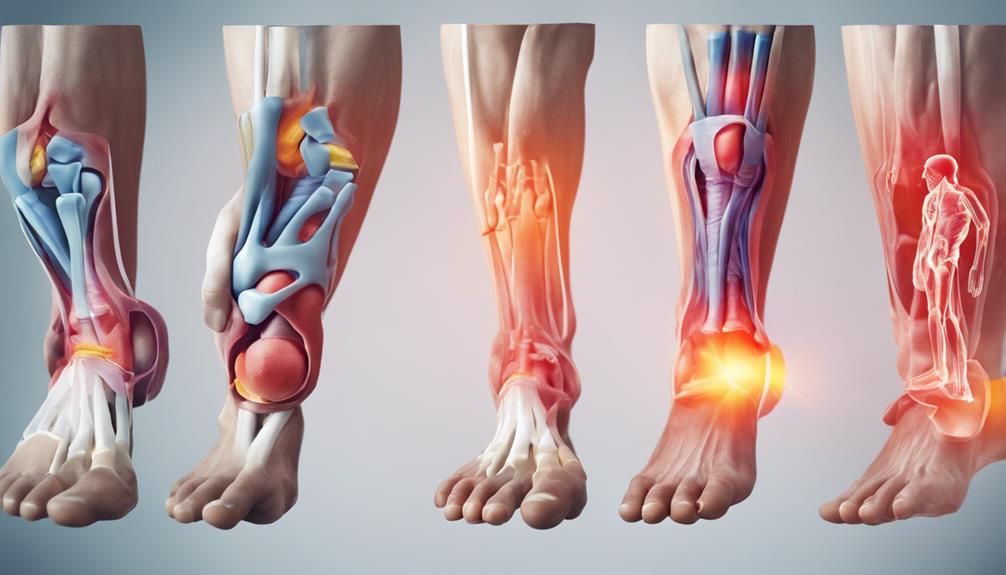Our feet are often overlooked when it comes to assessing our overall health, yet they serve as a critical link to many bodily functions and conditions. The intricate network of bones, muscles, and tissues within our feet can reveal significant insights about our general well-being. Understanding how foot conditions correlate with health can lead to early detection of potential issues, making it essential to pay attention to what your feet might be telling you.
In this article, we will explore the various ways our feet can indicate underlying health problems. From common foot symptoms to the effects of systemic diseases like diabetes, we will provide an overview of how our feet reflect our overall health status. By recognizing the signs and symptoms, individuals can adopt a proactive approach to foot care and overall well-being.
Understanding the Connection Between Feet and Overall Health
The human foot is a complex structure that supports the entire body. It contains 26 bones, 33 joints, and numerous ligaments, muscles, and tendons, all of which play vital roles in our mobility and balance. When the feet experience discomfort or abnormal changes, they often serve as a warning signal for other health issues, making it crucial to understand and monitor their condition.
Research indicates that various systemic illnesses, including arthritis, heart disease, and neurological disorders, can manifest symptoms in the feet. For instance, changes in skin texture, color, and temperature can indicate circulatory problems, while persistent swelling might suggest kidney or heart issues. Recognizing these signals can lead to timely medical interventions, improving overall health outcomes.
Common Foot Symptoms and Their Health Implications
Foot symptoms such as swelling, pain, and numbness are not merely discomforts; they can be indicative of more serious health issues. For example, persistent foot pain may suggest issues ranging from plantar fasciitis to more systemic conditions like fibromyalgia. Similarly, swollen feet can be a sign of fluid retention due to heart failure or kidney dysfunction.
Moreover, skin conditions on the feet, like athlete’s foot or fungal infections, can reflect weakened immune systems or diabetes. It’s essential to take these symptoms seriously and consult a healthcare professional for proper diagnosis and treatment. By doing so, you can address potential underlying conditions before they escalate.
How Foot Shape Can Reveal Underlying Health Issues
The shape and structure of your feet can provide valuable insights into your overall health. For instance, flat feet may lead to issues such as plantar fasciitis or knee pain, while high arches are often associated with conditions like ankle instability or stress fractures. There is also evidence suggesting that certain foot shapes can correlate with genetic conditions, such as Morton’s neuroma or rheumatoid arthritis.
Foot deformities, such as bunions or hammertoes, can also indicate biomechanical issues that might lead to pain in other areas of the body, including the hips and lower back. Recognizing these structural anomalies can guide individuals to seek appropriate interventions, such as custom orthotics or physical therapy, to alleviate discomfort and prevent further complications.
The Importance of Foot Care for Systemic Well-Being
Proper foot care is integral to maintaining overall health, as neglecting foot health can lead to cascading effects throughout the body. Regular foot inspections can help identify issues like corns, calluses, or infections early on, minimizing the risk of complications. Additionally, keeping feet clean and well-moisturized can prevent common ailments such as athlete’s foot or dry skin, which can further contribute to discomfort and mobility issues.
Investing time and effort into foot care isn’t just about comfort; it’s about preventing systemic complications that arise from neglect. For those with existing health conditions, such as diabetes, foot care takes on even greater significance, underscoring the need for routine check-ups and personalized care strategies.
Recognizing the Signs of Poor Circulation in Your Feet
Poor circulation can manifest in various ways within the feet, and recognizing these signs is crucial for maintaining health. Symptoms may include cold or numb feet, discoloration, and slow-healing wounds or sores. These signs may indicate peripheral artery disease or other vascular issues, which can have serious implications if left unchecked.
Individuals should take these symptoms seriously and seek medical evaluation if they notice any changes. Early detection of circulation problems can lead to timely interventions, reducing the risk of complications such as infections or even amputations in severe cases.
Feet and Diabetes: Warning Signs You Shouldn’t Ignore
For individuals with diabetes, foot health is particularly critical, as the disease can lead to neuropathy, reducing sensation in the feet. This condition increases the risk of unnoticed injuries, infections, and ulcers, which can escalate quickly. Symptoms like tingling, burning sensations, or unexplained foot pain should prompt immediate consultation with a healthcare provider.
Moreover, changes in skin color, temperature, or the appearance of new growths can signal complications related to diabetes. Regular foot exams by a specialist can help mitigate risks, enabling individuals to maintain their mobility and overall health while managing their condition.
The Role of Foot Pain in Diagnosing Health Conditions
Foot pain can be a diagnostic tool, reflecting underlying health issues that may not be immediately apparent. For instance, pain in the arch or heel can suggest plantar fasciitis or issues with the Achilles tendon, but it may also indicate systemic problems like inflammatory arthritis. Similarly, pain in the toes can signal conditions such as gout or Morton’s neuroma.
Understanding the specific type and location of foot pain can help healthcare providers make informed decisions about diagnosis and treatment. Therefore, it’s essential to keep a detailed record of symptoms and discuss them during medical visits for a more comprehensive health assessment.
Proactive Foot Health: Tips for Monitoring Your Well-Being
Taking proactive steps for foot health is crucial for overall well-being. Regularly checking your feet for any abnormalities, maintaining proper hygiene, and wearing well-fitted shoes can significantly reduce the risk of developing foot-related issues. Stretching and strengthening exercises can also enhance foot function and prevent injuries.
Additionally, individuals should not hesitate to seek professional advice if they notice any changes. Regular consultations with healthcare providers can help detect potential issues early, allowing for timely interventions that promote long-term health.
In conclusion, our feet are more than just tools for mobility; they are indicators of our overall health. Understanding the connection between foot conditions and systemic health can empower individuals to take charge of their well-being. By recognizing symptoms, maintaining proper foot care, and seeking timely medical advice, we can ensure our feet remain healthy and functional for years to come. Prioritizing foot health is not merely an act of self-care, but a proactive approach to safeguarding our overall health.


